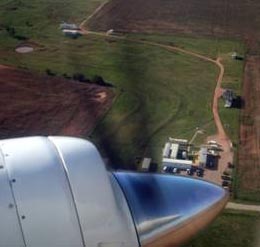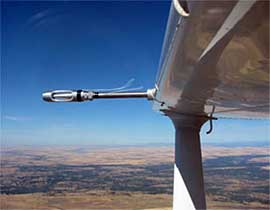Press Release
Media Contact: Lynne Roeder, 509.372.4331

The U.S. Department of Energy’s Office of Science has awarded a three-year, $6.4 million contract to Pacific Northwest National Laboratory (PNNL) to manage low- to high-altitude research aircraft for obtaining atmospheric measurements in support of cloud and climate science.
As part of the DOE’s Atmospheric Radiation Measurement (ARM) Climate Research Facility, the new Aerial Vehicles Program (AVP) will provide airborne measurements required to answer questions related to climate and weather.
The ARM Climate Research Facility consists of permanent research sites around the world, plus a mobile facility designed for deployment for up to one year in selected locations. Each site is equipped with state-of-the-art instrumentation and passive remote sensors and radars for collecting cloud and climate data. The AVP provides a “site in the sky” for acquiring in situ measurements to enhance those obtained from the ground sites.
When combined with ground-based measurements, aircraft data will improve computer models for predicting climate and weather.

“Measurements from these aircraft are critical in order to put ground-based measurements into context,” said Wanda Ferrell, program manager for the ARM Climate Research Facility.
With the award, PNNL will manage the AVP operations. To address the wide range of aircraft measurement requirements for conducting atmospheric science, the AVP will maintain a “virtual hangar” of multiple aircraft. Through this concept, aircraft may be located at and operated by other organizations, but will be coordinated by PNNL.
Data obtained from the AVP will be checked for quality and quickly made available to scientists via the ARM Archive.
“We are pleased to award this important work to PNNL and look forward to the key data that the AVP will add to the continuous measurements obtained at the ground-based sites,” said Rickey Petty, program manager for the AVP.
# # #
For more information on the ARM Climate Research Facility and AVP, see www.arm.gov/sites/aaf.

